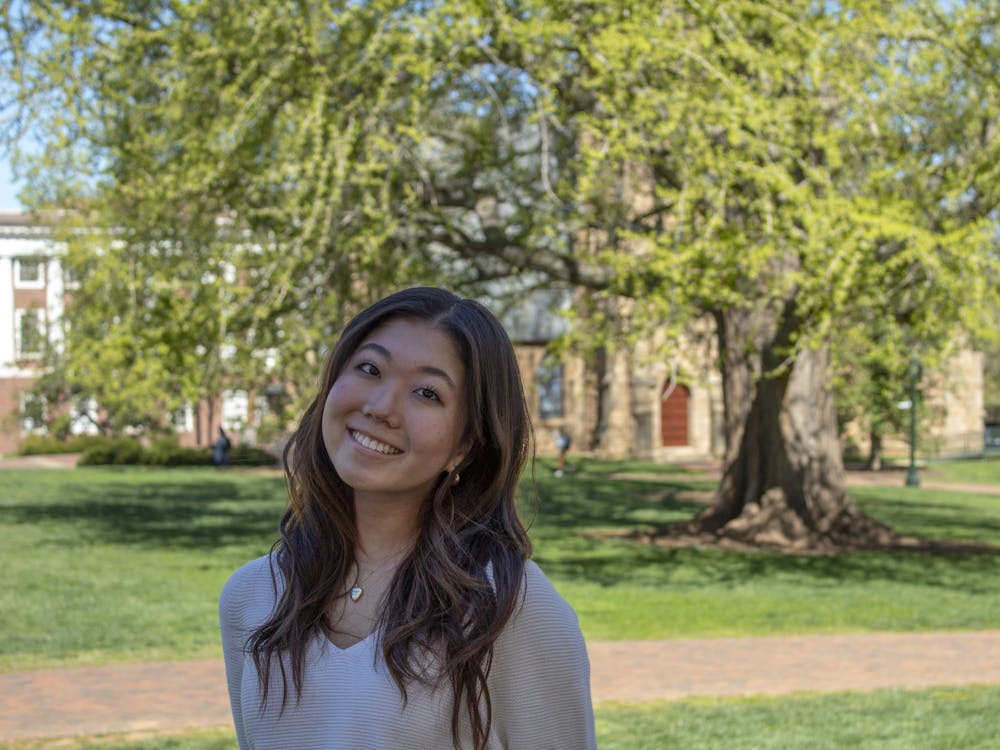Every year around this time, I look at my calendar and try to figure out how I'm going to make up everything I'm missing for Rosh Hashanah and Yom Kippur, the two holiest days of the Jewish year.
Rosh Hashanah begins tonight, so fortunately only Yom Kippur actually falls on a weekday this year, Monday, Oct. 6. That means less inconvenience and rescheduling for Jewish students, who comprise more than 10 percent of the undergraduate population at the University.
So I open my planner, and to my great irritation, I see that I have my Sociology 101 midterm on Yom Kippur, the Day of Atonement, during which I am supposed to be in services and fasting. Somehow, not eating or drinking for 24 hours seems like bad preparation for a midterm.
I am not alone in this problem. Non-Christian students frequently must choose between their religions and their academics because holidays as significant as Christmas or Easter often fall on class days.
Abby Bellows, a second-year College student and religious programming vice-president for the Hillel Jewish Student Union, said she has a midterm for Intro to Comparative Politics on Yom Kippur and is unsure when it could be rescheduled.
"If he wants to have it on the Friday before, it won't really work because we have services," she said.
Bellows said having a midterm scheduled for Yom Kippur does not affect her decision to attend services, but she is concerned that it may deter less observant students from attending.
She stressed that having midterms in introductory classes scheduled on religious holidays is especially detrimental because many first years are unaware of how to reschedule their exams.
"It isn't in any way malicious or explicitly insensitive," she said. "It's just being unaware."
Bellows said because her mother is a professor she realizes planning around holidays may be difficult, but she is frustrated by the lack of acknowledgement shown by some professors.
She said she thinks professors should be strongly discouraged from having exams on holidays, but they should not be formally forbidden.
"I think that's really where the heart of the matter lies because in small classes nobody may be affected," she said. "I think it's a basic issue of sensitivity."
Rebecca Klimpl, a third-year Commerce student and the president of the HJSU, said she has also faced difficulties because of missing class for holidays.
Klimpl said this year she had to reschedule an accounting project that was on Yom Kippur, and last year she had difficulty getting notes she missed in Econ 201.
"The head T.A. told me to get notes from other students," she said. "But most of my friends in that class were Jewish."
Although her accounting teacher is accommodating, she said she thinks there are a fair number of professors who are not. As a result, Klimpl said she thinks professors should not be able to give exams on important holidays.
"I don't see why they wouldn't want to do that," she said. "It seems like a pretty reasonable thing to ask. I think it would be quite considerate of their students."
Klimpl noted that even missing a regular class day can be very difficult for students to make up.
"For all our talk about multicultural awareness, it's pretty ridiculous that 15 percent of the student body is being put in a position of having to choose between missing a lecture and the most important religious holidays of the year," she said.
She said the University should at least raise awareness among professors because many students do not feel comfortable asking professors for special accommodations.
Elliot Haspel, a second-year College student and chair of the religious affairs committee for Student Council, said an effort to inform professors is already underway.
Haspel said an interfaith calendar is currently distributed to professors detailing the most important religious holidays and their significance. However, because of difficulties in organizing a committee at the beginning of the year, the calendar was distributed after professors had already created class schedules.
This problem should be averted next year as Haspel intends to create and distribute a two-year calendar. The calendar includes Jewish, Muslim, Hindu, Buddhist, Wiccan and other holidays.
Haspel said feedback about the calendars has been very positive and professors are generally understanding of students' religious needs.
However, some students have lesser expectations for professors' willingness to be accommodating.
First-year College student Michal Duvdevani is an international Jewish student from Israel. Duvdevani said in Israel everything is closed for Rosh Hashanah, Yom Kippur and other Jewish holidays, so she never had to worry about missing class for religious reasons.
"When I came here, I knew I was going to be a minority," she said. "I knew I was going to have Christmas break instead of Chanukah break."
She said she will not be attending class on Yom Kippur because she will be fasting and her father, an Israeli General, will be visiting her.
Duvdevani said she has no exams scheduled on Yom Kippur, but if she did, she would reschedule them. However, she does not think special accommodations need to be made for minority students.
"I feel like everyone is really okay with my being Jewish or someone being Muslim," she said. "I don't think they need to cancel tests just because I'm another religion."
She also said it would be unreasonable for classes or exams to be canceled because it would have to be done for all other minority religions, too.
Prof. Vanessa Ochs, director of the Jewish Studies Program, said she agreed. She observed that during certain years observant Jewish students could miss as many as seven days during the fall semester for Rosh Hashanah, Yom Kippur and Sukkot, but she thinks it would be unreasonable for mandatory class cancellation to be enforced.
"I certainly don't think classes should be canceled," she said. "Eighty percent of students shouldn't miss out on learning."
Additionally, she said it would be difficult to decide which holidays should be honored. She observed that classes aren't canceled on Good Friday.
Ochs said she cancels her own classes on Jewish holidays and tries not to schedule exams around Jewish and Muslim holidays.
Third-year College student Zeenat Kolia said that Muslim holidays often fall on class days as well.
As with Judaism, Kolia said Muslim students must primarily be concerned with two holidays during the school year. Eid al Fitr follows Ramadan, so it will fall around Nov. 25 this year, and the second Eid is just over two months later. Both holidays center around giving thanks and require observant students to attend prayer services during the day.
Nebil Hussein, a third-year College student and president of the Muslim Student Association, said many students attend prayer services in the morning and then rush to class.
"It's supposed to be looked at as a day of rest and celebration," Hussein said. "We end up quickly doing worship here, but not taking the time to get together with family."
He also said many students find it too difficult to fast during Ramadan because it often falls during final exams.
Both Hussein and Kolia said they have been fortunate in not having any midterms scheduled on holidays, but if they did, they would have to reschedule to attend services.
Rescheduling can be logistically difficult, but fortunately my sociology professor was exceptionally understanding. A post-class discussion revealed he had scheduled the midterm before realizing the conflict. Soon after, he rescheduled the midterm for the next class period. My yearly conflict was once again averted satisfactorily, as I hope it is for all other students.




